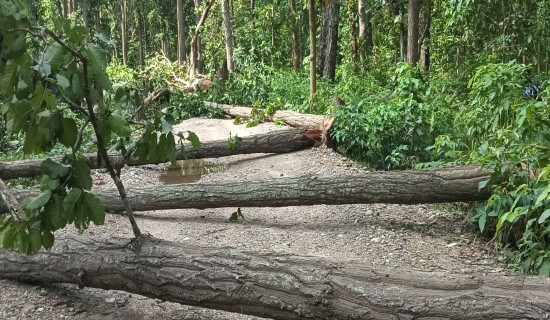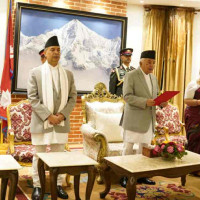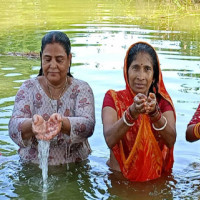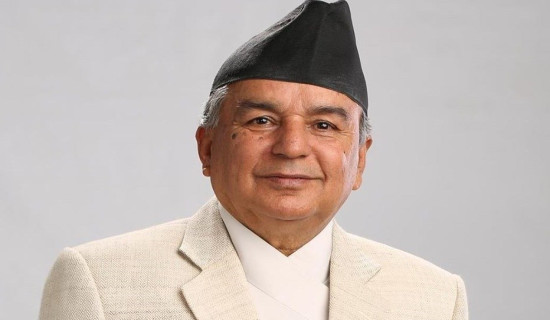- Saturday, 13 September 2025
Capacity building meet stresses community’s role in conservation
By A Staff Reporter,Kathmandu, Aug. 2: At a recent subregional capacity-building event, stakeholders underscored the importance of ecological representation, connectivity, equitable governance, indigenous and local community participation, and transboundary cooperation for South Asian countries to meet crucial 2030 global conservation commitments.
The four-day capacity-building workshop for the South Asia subregion was organised by ICIMOD, the Secretariat of the Convention on Biological Diversity (SCBD), and the High Ambition Coalition for Nature and People which concluded here on Thursday, according to a press statement issued by ICIMOD.
Target 3 of the Kunming-Montreal Global Biodiversity Framework aims to conserve and manage at least 30 per cent of terrestrial, inland water, and coastal and marine areas by 2030, the statement read.
This week, scientists, conservation managers, youth, women, and representatives from Indigenous Peoples and local communities gathered in Kathmandu to explore ways to meet Target 3.
This includes areas of significant biodiversity and ecosystem functions, through ecologically representative, well-connected, and equitably governed systems of protected areas and other effective area-based conservation measures (OECMs). Central to this commitment is the recognition of indigenous and traditional territories and their rights over ancestral lands.
Adopted by 195 countries in December 2022 during the 15th meeting of the Conference of the Parties to the Convention on Biological Diversity, the Kunming-Montreal Global Biodiversity Framework sets 23 action-oriented global targets for urgent action over the decade to 2030. Achieving Target 3 is seen as the minimum requirement to halt and reverse biodiversity decline by 2030.
Experts stress the need for connectivity, effectiveness, and respect for Indigenous Peoples’ and local communities’ rights to meet conservation objectives.
The workshop focused on how South Asian countries can achieve their commitments under Target 3 and related targets of the Framework. Discussions included developing national priority actions to enhance progress towards the target and highlighting essential tools for Target 3 implementation.
Also, the workshop explored opportunities for transboundary cooperation through OECMs, which conserve biodiversity outside protected areas networks.
In the concluding session, Minister for Forests and Environment, Ain Bahadur Shahi Thakuri, highlighted Nepal’s commitment to and successful efforts in conservation.
He stressed the need for innovative approaches, strong partnerships, and cooperation at local, national, and regional scales.
He underscored the importance of implementing National Plans to sustainably manage biodiversity and enhance resilience, praising efforts by ICIMOD, other stakeholders, and sections of society, including Indigenous Peoples and local communities, in achieving conservation goals for sustainable development.
Dr. Sunita Chaudhary, Biodiversity Lead at ICIMOD, highlighted the importance of regional cooperation. “Transboundary OECMs present a great way to achieve conservation at scale and bring countries together to contribute to global conservation goals. We have laid a strong foundation for this through our work in the region.”
















